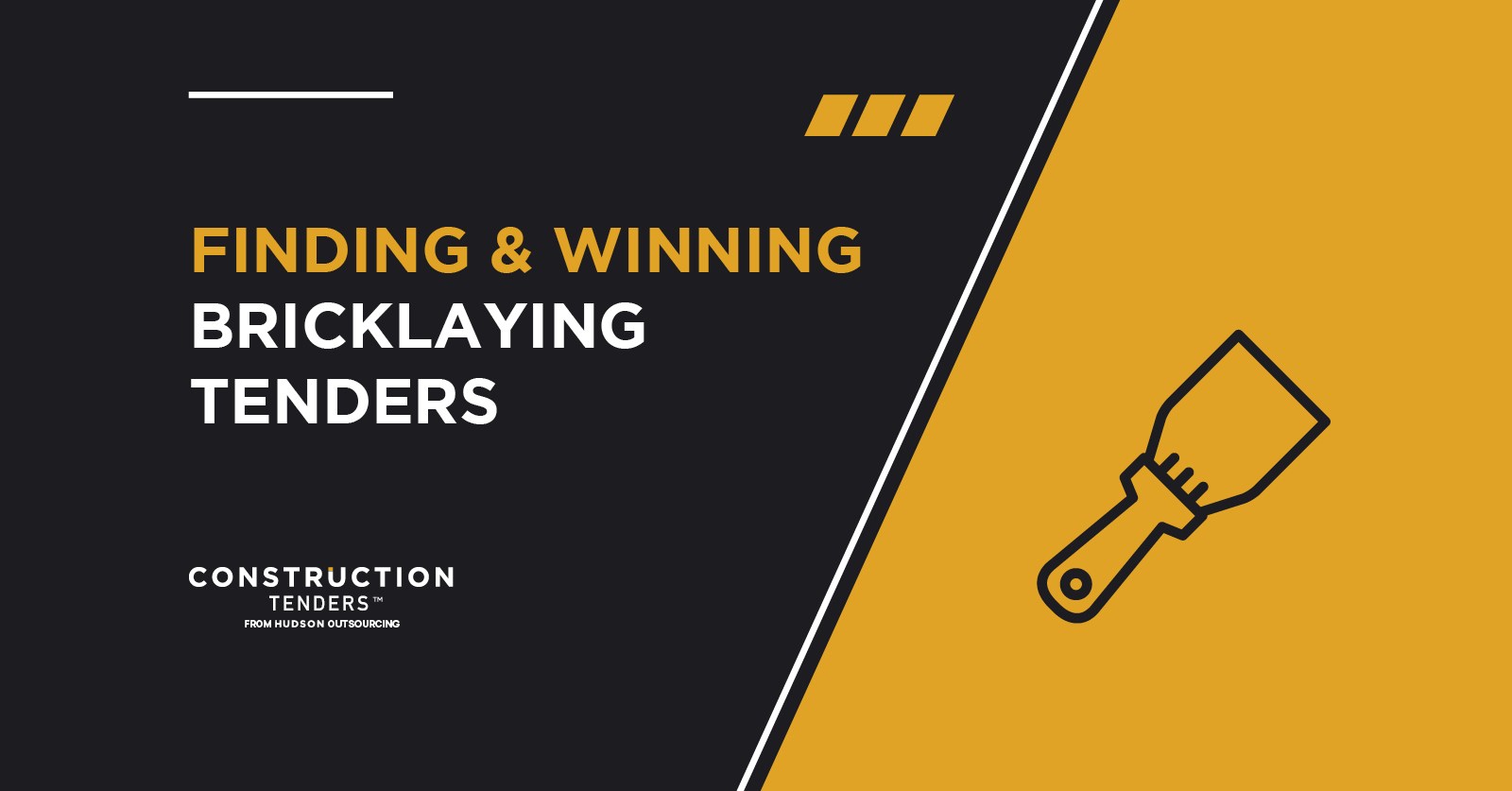Answers to your CDM tenders FAQ’s
CDM tenders are published to ensure construction projects are upholding best practice from a health and safety perspective.
CDM are also the main set of regulations for managing the health, safety and welfare of construction projects. The CDM Regulations can have their own weighting and section within construction tenders.
Often, CDM tenders are looking for a:
- A CDM Coordinator
- CDM Coordinator Services
- A CDM Consultant
- Or a CDM Advisor.
What is a CDM Coordinator?
A CDM Coordinator is typically required to support the Project Manager. However, most recently they are now often transferred to a Principal Designer and Principal Contractor. The Principal Designer (PD) is responsible for the pre-construction phase. The Principal Contractor is responsible for the construction phase.
They often must provide cost advice and cost management for the project from inception to completion. They may be required to attend client, design, project, site and other meetings while on the project. Depending on the project, they may be expected to review documents including:
- Drawings
- Specifications
- Cost plans
- Provide a new and updated Health and Safety Plan
- RIBA Outline Plan of Work.
Some examples of a CDM coordinator’s role could be:
- Assist and advise the client regarding competence and resource allocation of designers and contractors.
- Advise the client on matters relating to health and safety during the design process and planning phases of the project.
- Plan the work, mitigating the risks involved from start to completion of the project.
- Manage the right people for the right job at the right time.
- Have the right information about the risks and how they’re being managed.
- Notify when there are any subsequent changes to the construction phase plan.
- Facilitate good communication between all those involved on the project.
What Associations and Institutions are related to CDM tenders?
CDM tenders often mention the Royal Institute of Charted Surveyors (RICS) and RIBA (Royal Institute of British Architecture). Another association that is commonly used with CDM tenders is The Association for Project Safety (APS). Construction project and contract work often use the RIBA Outline Plan of Work. This is used as a type of project management and planning.
What type of questions can I expect in CDM tenders?
CDM tenders looking for a CDM Coordinator may ask the following questions:
Example one – Designers may be asked to:
“Please demonstrate that you have, and implement, arrangements for meeting your duties under regulation 11 of CDM2015.”
Example two – a CDM Coordinator may be asked:
“Please demonstrate how you encourage cooperation, coordination and communication between designers (and anyone else). You should be able to demonstrate how you go about encouraging co-operation, co-ordination and communication between designers.”
Who commissions CDM tenders?
CDM tenders can be commissioned by either the public sector or the private sector. Both are constantly looking to invest money into the construction sector, and a CDM Coordinator is essential. If they don’t have one in-house then they will release a tender to procure the service. Within the public sector, it is often Local Councils that are releasing CDM tenders.
They are needed across the construction industry for a multitude of projects such as commercial, residential and public construction.
Social value in CDM tenders
Demonstrating social value within public sector tendering now has a mandatory minimum weighting of 10%. It is increasingly important within the construction industry that your business has a focus on sustainable development. You must consider the social, environmental, economic aspects you intend to meet while carrying out the contract. The new social value model was launched to encourage:
- The creation of new jobs and promoting skills
- COVID-19 recovery
- Tackling climate change
- Economic growth
- Equality and diversity within the workplace.
Contractors will be looking for potential suppliers to make promises and pledges that they can actually keep. The introduction of social value helps level the playing field within public procurement. It allows SMEs to be in the running with larger multi-nationals.
Need help writing your CDM tenders?
The quality of your written response matters no matter the industry you’re in when tendering for work. Contractors want to see clear and concise answers that meet word counts and are void of overly technical jargon. We understand that writing isn’t everyone’s strong suit and bidding for a construction contract can be tricky. We also understand that you don’t always have the time and resources to write a high-quality written response in-house.
Our sister company, Hudson Succeed, boasts an 87% success rate and has over 60 years of collective bid writing experience. They can help you write a quality response that will outshine your competitors. They offer four bid writing support services. Whether you’re new to tendering or have written a response that needs to be proofed before you submit. There’s tendering writing support that can help you secure pipelines of work for your business.
Tender Mentor
If you’ve already written your CDM tender response and just want someone to look over it – send it our way. Our Bid Writers will proofread it checking it’s in line with the specification. As part of Tender Mentor, they’ll also double-check for grammar and spelling errors before you submit.
Tender Writing
Perhaps you’ve found the perfect tender for your business, but don’t have the time or resources to complete it in-house. You can send it to our Bid Writing Team and they’ll provide you with a full Tender Writing breakdown. They’ll write the whole bid for you and even submit it on your behalf.
Tender Ready
Our Tender Ready programme is perfect for businesses who have never tendered before. We’ll work with you to create an organisation bid library, making sure you have everything in place to tender successfully.
Tender Improvement
The Tender Improvement package can help those who aren’t seeing any success from their current tendering efforts. Our Bid Writers will assess your previous responses and tender documents, working with you to improve on future submissions.
Where can I find CDM tenders?
Half the challenge is finding the right CDM tenders for your business. Searching for the right opportunities can take a considerable chunk out of your working day. Searching hundreds of sites that host multi-industry tenders can turn into a bit of a headache. Wouldn’t it be great if there was one, central industry-specific portal that hosts construction leads from across the UK?
Enter – our Construction Tenders portal!
Opportunity Trackers manually search and upload construction tender opportunities from across the UK to our Construction Tenders portal. This means no more missed opportunities due to unreliable CPV codes. You can search for CDM tenders filtered by location, keyword, budget and more. This streamlines the process, allowing you to find the perfect CDM tenders for your business.
A subscription to Construction Tenders offers your business:
- Access to all unique, public and private sector opportunities across the Construction sector.
- An on-hand Account Manager to answer any questions or queries you may have about CDM tenders or tendering in general.
- A daily email bulletin sent straight to your inbox when new tenders are uploaded that day.
- Discounted support from Hudson Succeed, our bid writing division.
Below are previous CDM tenders sourced on our portal:
CDM coordinator services
East Midlands Housing Group- East Midlands- Budget: £630,000
Cost & CDM Consultant – Cyclical Painting Contract
Port of Leith Housing Association Ltd- Scotland- Budget: Undisclosed
DBC (AL) Principal Designer & CDM Advisor Services for the Council’s New Homes Programme
Supply Hertfordshire- Eastern- Budget: £150,000
Framework Agreement for CDMA and Principal Designer Services
The Guinness Partnership Ltd- London- Budget: Undisclosed
Health, Safety and CDM Services Framework
Bath and North East Somerset Council- South West- Budget: Undisclosed
We source tendering opportunities for services including;
- CDM Tenders
- Structural Engineering Tenders
- Electrical Tenders
- Building Works
- Joinery Tenders
- Architectural Tenders
- Refurbishment Tenders
- Brickwork Tenders
- Health & Safety Tenders
- Small Construction Tenders
- Civil Engineering Tenders
- Surveying Tenders
- Demolition Tenders
- Flooring Tenders
- Glass Tenders
- M&E
- Cost Consultancy
- Painting Contracts
- Decorating Tenders
- Masonry and many more.
Book a free live demo.
Want to save even more time?
Upgrade to Discover Elite to optimise your tendering opportunities even when you’re busy. The Ultimate Time Saver and Become a Pre-Bid Master packages can improve your competitor awareness and bidding success rate. They can help save you even more time when searching for CDM tenders.
The Ultimate Time Saver package offers:
- An annual subscription to a maximum of two Hudson Discover sector-specific portals. This option best suits a business that overlaps two industries such as Construction and Logistics.
- A maximum of five tender breakdowns per month.
- Weekly phone calls with your dedicated Account Manager to discuss viable tendering opportunities.
- Pre-market and award engagement notices monitored on your behalf.
- Buyer portal management including registration, password management, downloading documents and assessing viability based on your bid or no-bid
The Become a Pre-Bid Master package offers your business:
- All of the above.
- Up to seven tender breakdowns per month.
- A Bid Strategy delivered by a Senior Bid Manager with a minimum of 5 years of experience. It will also be managed by our Global Bid Director.
Contact us to find out how we can help your business grow.





